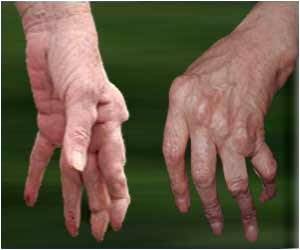Blocking the HDAC3 enzyme improved memory flexibility in aging mice, suggesting a promising approach to combat cognitive decline.

Pharmacological HDAC3 inhibition alters memory updating in young and old male mice
Go to source). “It’s important to understand what’s happening at a molecular level during a memory update because, as humans, most of our memories are updates. We’re constantly building on things we already know and modifying existing memories,” said Janine Kwapis, assistant professor of biology and senior author of the paper. “But no one has really looked to see if the mechanisms behind memory formation and memory updating are identical or if they are unique for memory updating. This is a step forward in figuring that out.”
‘Forgetfulness getting the best of you? New research links #memoryproblems in older adults to a specific enzyme histone. Could blocking this enzyme be the key to sharper minds? #aging #memory ’





How the Brain Consolidates Memories Explored?
When a memory forms, the brain rewires itself to keep that memory in place through a process called consolidation. Cells express proteins at the synapse, the gap between neurons that allows communication between nerve cells, linking together the cells activated when the memory formed. When the memory is recalled, those cells then fire together at the same time.“When you’re presented with new information, you have to bring that existing memory out of storage and weaken it so it’s ready to take on new information. Once the new information is learned and those new neurons are incorporated, the updated memory is solidified and stored again,” Kwapis said. Kwapis noted that this process, called reconsolidation, becomes less effective with age.
In this study, the research team wanted to understand why it’s harder to update memories with normal aging. If they could enhance gene expression during reconsolidation, could they enhance the memory update too?
To test this, they blocked histone deacetylase 3 (HDAC3), an enzyme that regulates gene transcription, the process of copying information from a DNA segment into RNA that will ultimately make a functional protein. HDAC3 has been shown to negatively affect memory formation and gene expression during consolidation but the researchers said its role in memory reconsolidation wasn’t previously studied.
“HDAC3 typically tightens up the chromatin, a complex of DNA and proteins, and makes it hard for transcription to happen,” said Chad Smies, a doctoral student in biology and first author of the paper. “If we block this enzymatic activity from happening, it may help maintain a more open chromatin state and improve gene expression.”
Advertisement
The team used a methodology called the objects in updated locations paradigm, which Kwapis developed specifically to test memory updating. It includes three phases: a training session where mice learn two locations of identical objects; an update session where one of the objects is moved to a new location; and a test session where the objects are placed in four separate locations — the original two training locations, the updated location and a completely novel location.
Advertisement
By identifying molecular mechanisms like HDAC3, the research team said they hope to provide potential therapeutic targets for improving cognitive flexibility in old age.
“If these mechanisms improve memory in normal aging, they could potentially help with conditions like Alzheimer's disease and dementia too,” Kwapis said.
Reference:
- Pharmacological HDAC3 inhibition alters memory updating in young and old male mice - (hhttps://www.frontiersin.org/journals/molecular-neuroscience/articles/10.3389/fnmol.2024.1429880/full)
Source-Eurekalert















